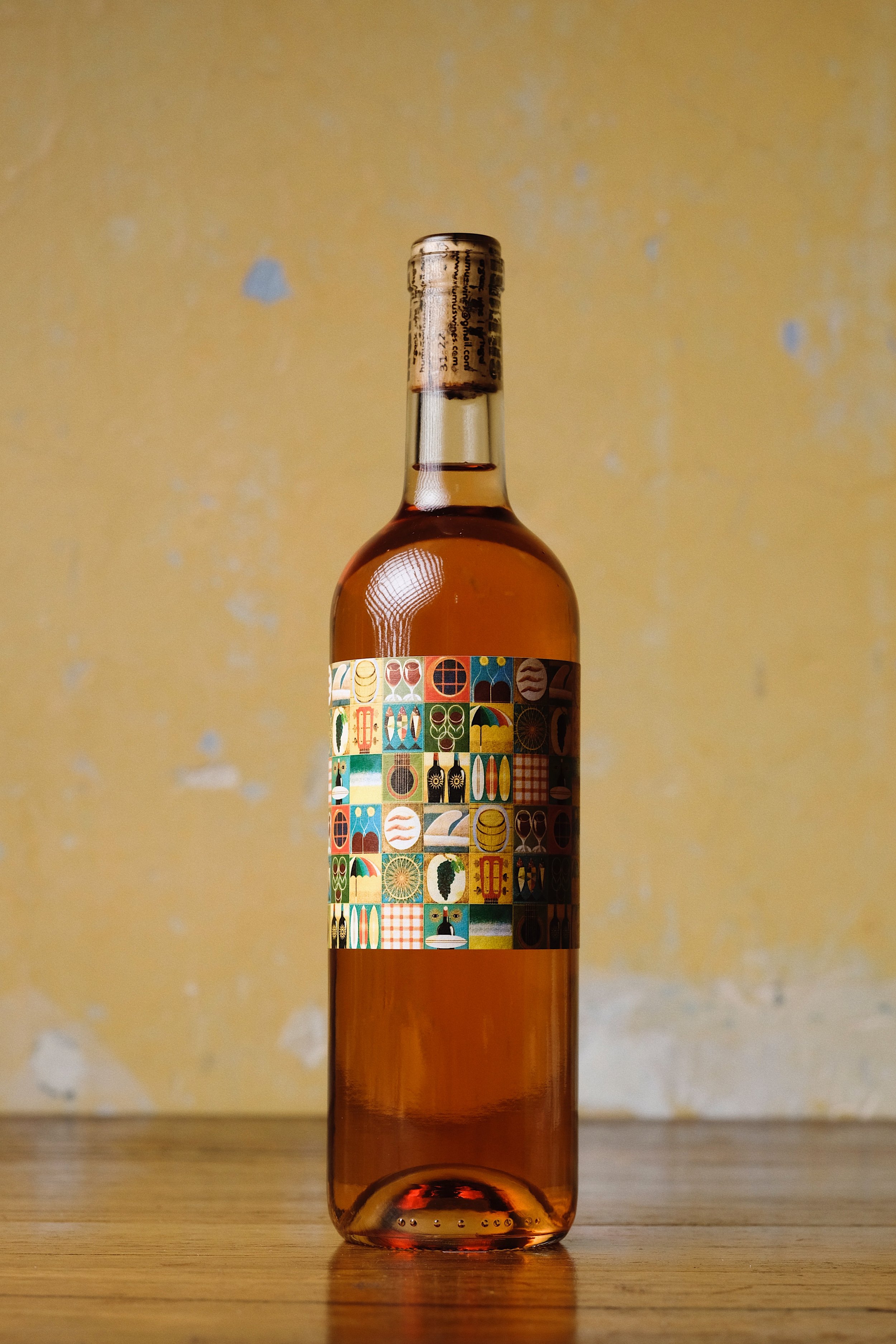Humus
Rodrigo Filipe
Caldas de Rainha (Lisboa)
Humus began in 1999 when Rodrigo Filipe took over the family estate from his father. The estate, Encosta da Quinta, was bought by his grandfather in the 1960s and, as was almost universally the case back then, practised polyculture with a few hectares under vine.
His father only ever made wine as a hobby for the family and friends to drink, selling the rest of the grapes to co-ops. Whilst at university, a young Rodrigo returned home one summer for a particularly high-yielding vintage at the behest of his father. Rodrigo was blown away by how connected he felt to the land that he and the vines had grown up on together. He has been the custodian of the vines ever since.
Humus feels like it is in the middle of nowhere, despite being a mere one-hour drive north of Lisbon. Nine hectares of vines grow on red clay and limestone, surrounded by untamed wild grasses and trees. Organically certified since 2006, and working with biodynamic practices, soil health is of the utmost importance to Rodrigo (you don’t name your wine label ‘Humus’ without being obsessive about soil health after all).
With no other vineyards anywhere near (and no appellation to fall under besides the huge regional ‘Lisboa’), Humus is a little viticultural oasis of undulating aspects, unbridled biodiversity and soothing cool winds from the Atlantic Ocean, just 15km away. These crisp breezes keep the vineyards delightfully fresh, even in the afternoon summer sun, allowing Rodrigo to make wines with incredible freshness. The wines all have zingy acidity and lower alcohol (11.5-12%) without sacrificing full ripeness and flavour, with a pronounced savoury minerality running through the wines.
Varieties planted include Touriga Nacional, Tinto Barroca, Castelão, Syrah, Fernão Pires, Arinto and Sauvignon Blanc. Rodrigo has far more black grapes planted than white but gets most excited by drinking whites, oranges and roses. Thus, he gets creative and crafts some crazy good wines using his most planted variety of Touriga Nacional as a blanc de noir free run to make palheto and orange wine via maceration of skin of the white varieties that he has direct pressed the juice from.
His reds hardly feel like an afterthought, however, finding the same astounding freshness and vitality. Unsurprisingly, Rodrigo eschews the general approach to red wine-making in Portugal of eeking every bit of extraction possible. Maceration times are shorter, tannins and alcohols lower, and the wines energising.
Rodrigo’s winemaking is as hands-off as it comes. Fermentation is all in steel with ambient yeasts. After fermentation, all wines go to old barrels, ranging from barrique to larger format. Once there he doesn’t touch them until bottling. This lack of racking must contribute to their pure expression and longevity (we were lucky enough to taste wines going back to 2013 and couldn’t believe their apparent youthfulness).
Rodrigo ceased using any sulphur at all in 2010—the first to do so in Portugal.
-
Extraordinarily delicious wines, with incredible freshness, that speak of their unique secluded viticultural haven, and the humble visionary who grows them.
-
Country: Portugal
Region: Lisboa
Village: Caldas da Rainha -
Soil Types: Red Clay, Limestone
Size: 9ha
Farming: Organic (certified)
Varietals: Arinto, Fernão Pires, Sauvignon Blanc, Touriga Nacional, Fernão Pires, Tinta Barocca, Castelão, Syrah
Current Releases
Pet Nat Rose
Touriga Nacional & Castelão, 2020
A co-fermentation of Touriga Nacional and a touch of Castelão.
Whole bunch direct pressed, making this a super pale rose.
Fermentation in old small format oak before being transferred to bottle after one month.
Rose
Touriga Nacional, 2021
100% Touriga Nacional.
Direct whole bunch pressed making for a very pale and delicate rose.
Fermented in steel and aged in old oak on its lees for 1 year.
Palheto
Field Blend, 2021
Rodrigo’s take on a traditional Palheto (a genuine field blend of whites and reds all left to macerate on whole bunches).
Touriga Nacional almost Blanc de Noir (2 hours maceration) juice fermented and macerated with skins of Arinto and Fernão Pires.
Aged in oak on its lees for 12 months.
Like a juicy rose and a savoury orange had a delicious baby.
Curtimenta
Touriga Nacional, Arinto, Fernão Pires +,2020
Touriga Nacional Blanc de Noir, fermented with and left to macerate for 8 months on skins of Arinto, Fernão Pires and Sauvignon Blanc in large traditional chestnut barrels and amphora.
Aged for a further 9 months in old oak one racked off the skins.






